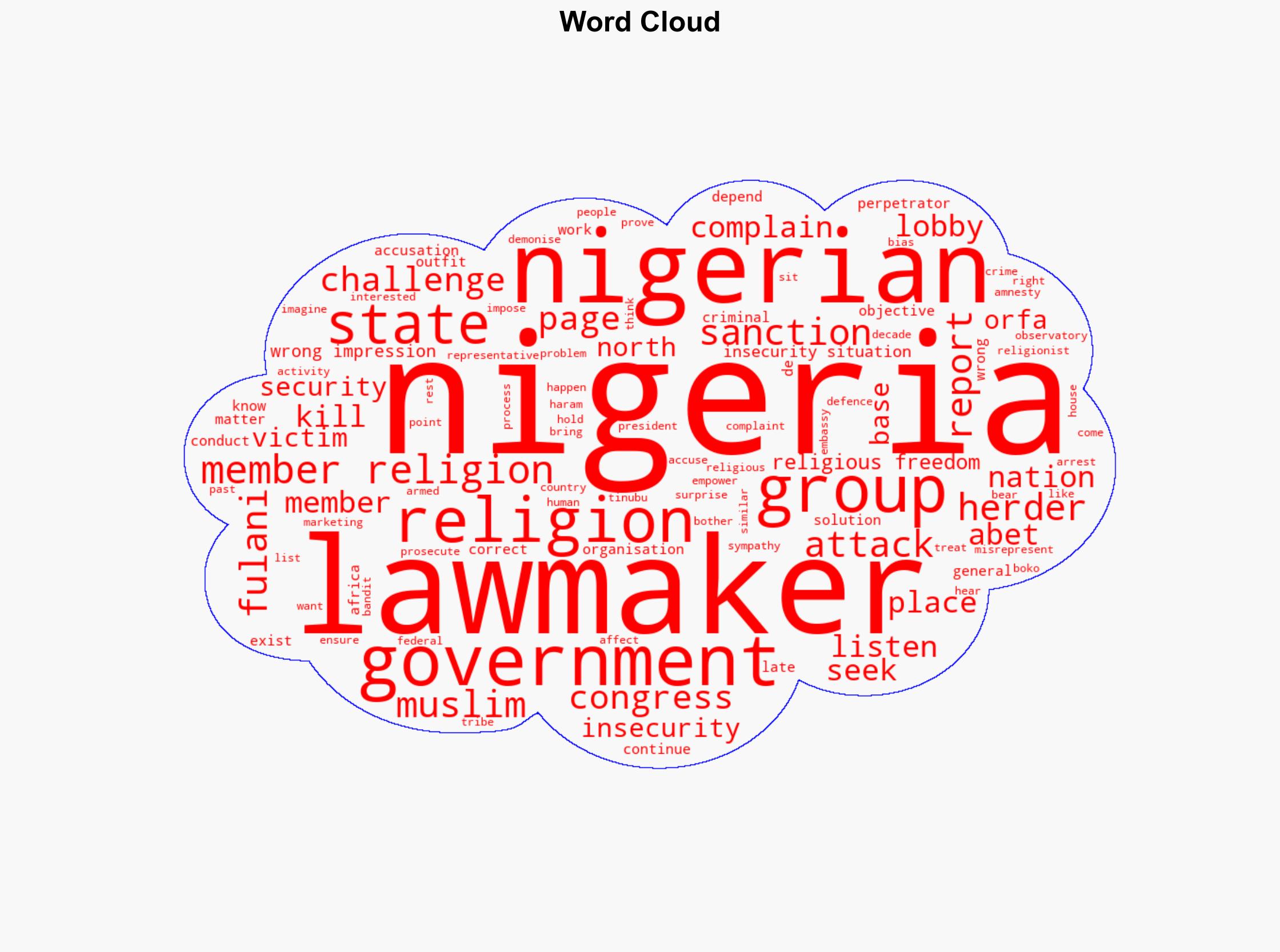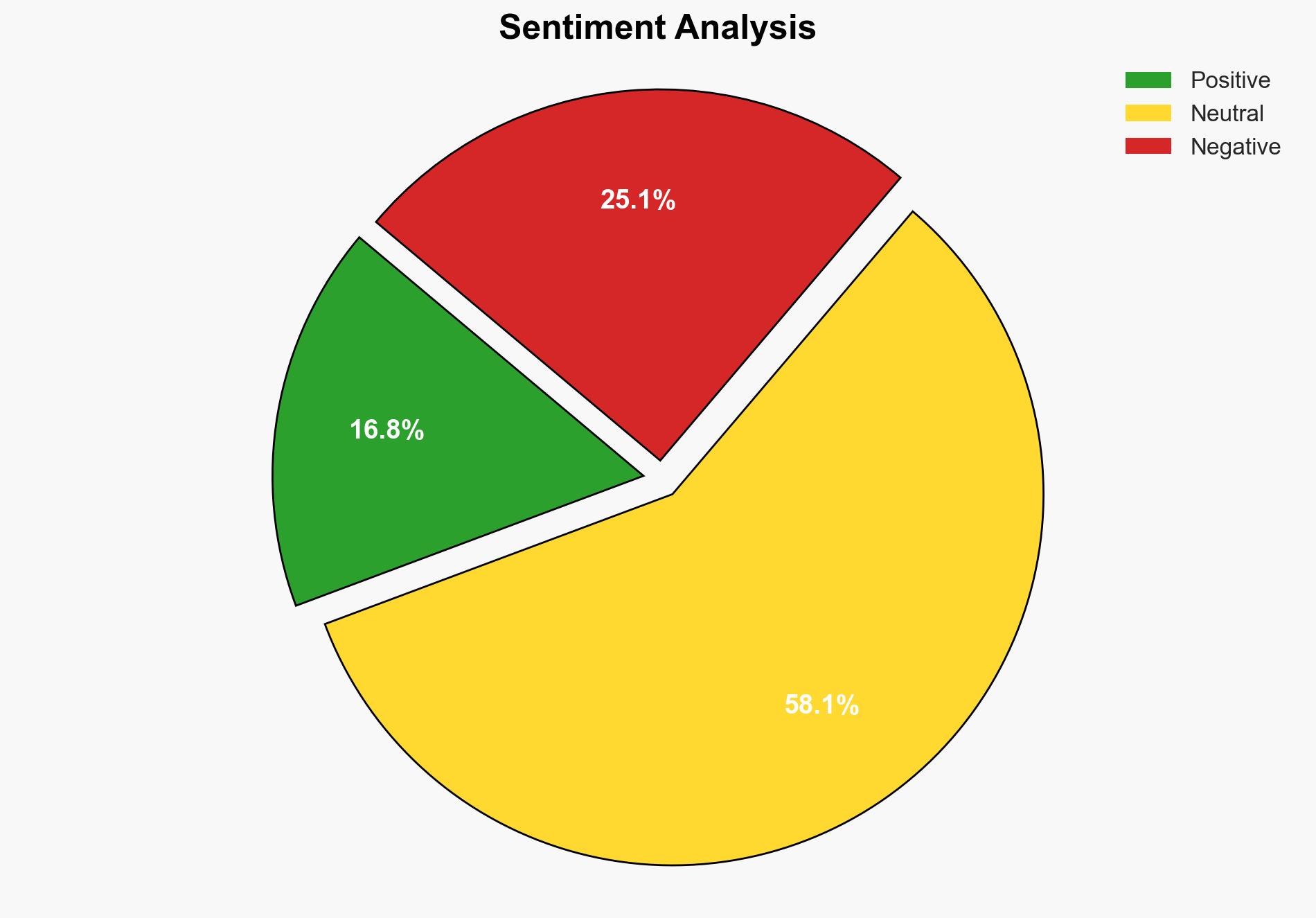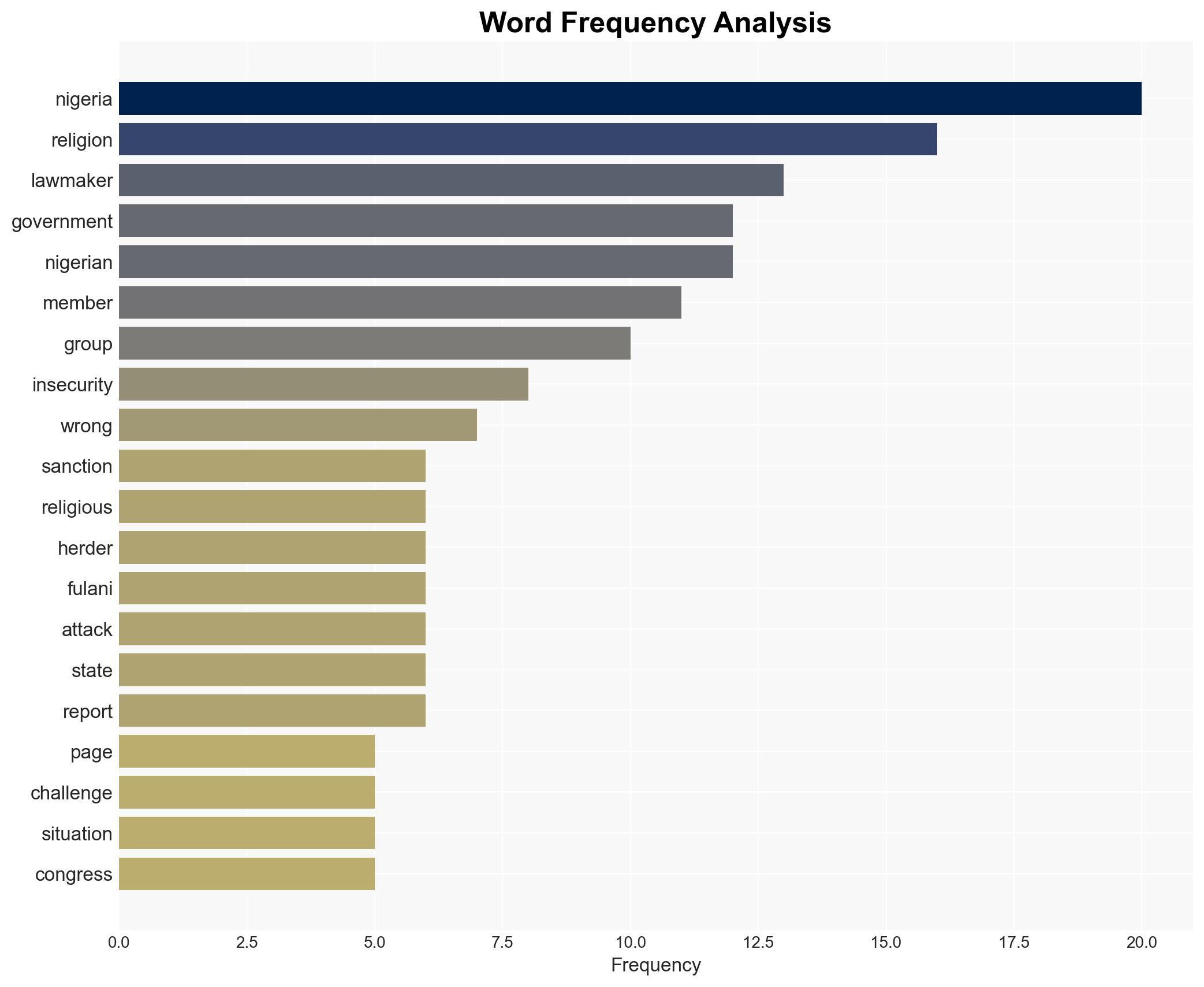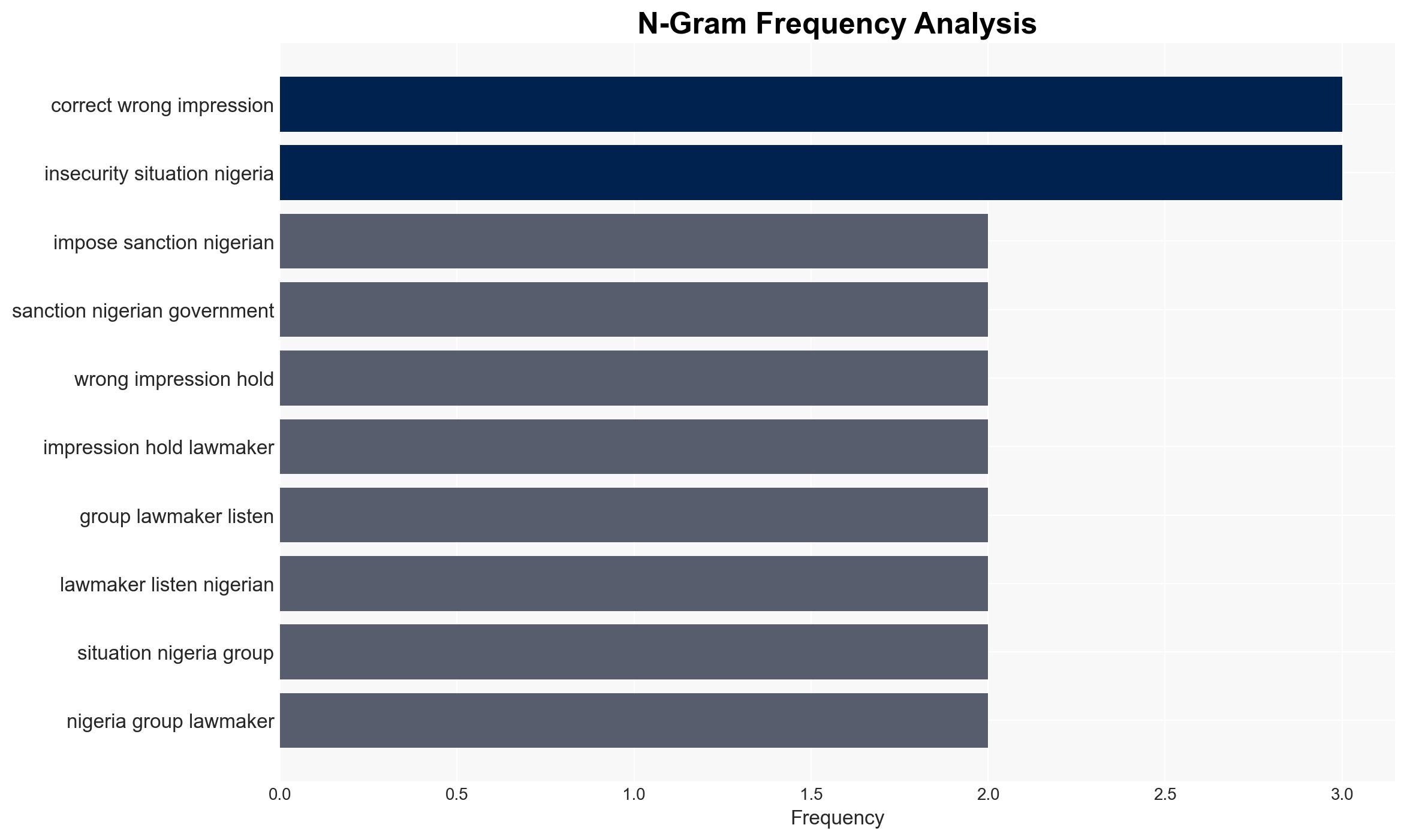How the US Congress sees Nigerian Muslims – The Punch
Published on: 2025-04-04
Intelligence Report: How the US Congress sees Nigerian Muslims – The Punch
1. BLUF (Bottom Line Up Front)
Recent discussions in the US Congress have raised concerns about religious freedom and security issues in Nigeria, particularly focusing on the treatment of Nigerian Muslims. Accusations have been made against the Nigerian government for allegedly abetting violence against specific religious groups. These discussions have implications for US-Nigeria relations, potentially affecting sanctions and international perceptions. Key findings suggest a need for accurate representation of the security situation in Nigeria and collaborative efforts to address internal challenges.
2. Detailed Analysis
The following structured analytic techniques have been applied for this analysis:
General Analysis
The US Congress has been approached with complaints regarding the treatment of Nigerian Muslims, with accusations that the Nigerian government is complicit in religious violence. This narrative has been fueled by lobbying efforts seeking to impose sanctions on Nigeria. The analysis reveals a complex security landscape in Nigeria, where various armed groups, including those of Fulani origin, are involved in criminal activities. The portrayal of these issues in Congress may not fully capture the multifaceted nature of the insecurity in Nigeria, leading to potential misinterpretations and policy decisions.
3. Implications and Strategic Risks
The ongoing narrative in Congress poses several strategic risks:
- National Security: Potential sanctions could exacerbate existing security challenges in Nigeria by limiting resources and international cooperation.
- Regional Stability: Misrepresentation of the security situation may lead to increased tensions between ethnic and religious groups within Nigeria.
- Economic Interests: Sanctions could negatively impact Nigeria’s economy, affecting trade relations and foreign investment.
4. Recommendations and Outlook
Recommendations:
- Engage in diplomatic dialogues to provide a comprehensive and accurate representation of Nigeria’s security challenges to international stakeholders.
- Enhance collaboration between Nigerian and international security agencies to address the root causes of violence and improve security architecture.
- Promote initiatives that foster inter-religious and inter-ethnic dialogue to mitigate tensions and build community resilience.
Outlook:
Best-case scenario: Improved diplomatic relations and collaborative security efforts lead to a reduction in violence and enhanced stability in Nigeria.
Worst-case scenario: Sanctions are imposed, exacerbating economic and security challenges, leading to further instability.
Most likely outcome: Continued dialogue and incremental improvements in security cooperation, with ongoing challenges in accurately representing the situation to international audiences.
5. Key Individuals and Entities
The report mentions several individuals and entities involved in the discussions and lobbying efforts:
- Bola Tinubu
- US Congress
- Fulani groups
- Boko Haram
- Saudi Arabia
- Organisation of Islamic Countries
These individuals and entities are central to the ongoing narrative and efforts to address the security and religious freedom issues in Nigeria.





